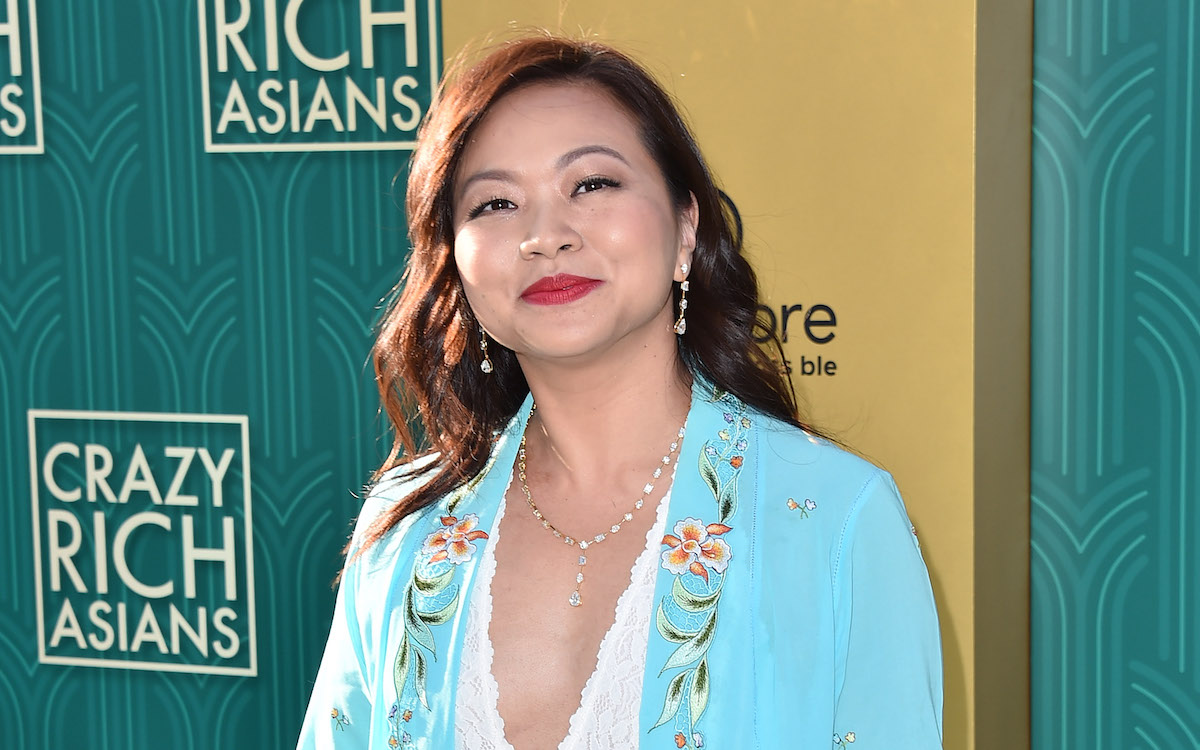Crazy Rich Asians Writer Adele Lim Quits After Discovering Her White Male Colleague Was Paid 10 Times Her Salary

Crazy Rich Asians’ co-writer Adele Lim will not be returning to work on the romcom’s sequels, thanks to Warner Bros’ insistence on tokenizing and severely underpaying her.
Peter Chiarelli, a white man, was the first writer hired to adapt Kevin Kwan’s book for the film. It’s so important to have Asian voices involved in the crafting of distinctly Asian stories, but after being brought onboard, Lim equated her treatment and the treatment of women and people of color in Hollywood in general to “soy sauce”–meaning they’re “hired to sprinkle culturally specific details on a screenplay, rather than credited with the substantive work of crafting the story,” writes The Hollywood Reporter.
And Lim wasn’t just relegated to the culturally-specific sidelines, she was underpaid for work, too. Lim reportedly quit the franchise when she found out that Chiarelli was being paid roughly ten times her salary. She didn’t provide exact numbers, but said that her starting offer was $110,000+, while her colleague’s was in the $800,000 to $1 million range.
Warner Bros’ excuse for that disparity was that those offers were based on experience. Chiarelli, having a whole two writing credits to his name (according to IMDB) is apparently worth ten times more than Lim, who made her feature writing debut on CRA but has a ton of writing and producing experience in television. This logic will surely seem reasonable to a lot of people–that you have to pay your dues and work your way up the ladder, right?
But as Lim explains, marginalized people aren’t given the same opportunities to ever even reach the first rung of that ladder, so how are they ever supposed to climb it?
“If I couldn’t get pay equity after CRA, I can’t imagine what it would be like for anyone else, given that the standard for how much you’re worth is having established quotes from previous movies, which women of color would never have been [hired for]. There’s no realistic way to achieve true equity that way,” she says.
After Lim quit, Color Force (the production company behind CRA) reportedly spent five months looking for other writers of Asian descent to fill Lim’s role (really highlighting the “soy sauce” tokenization there) before coming back to Lim. Chiarelli even offered to split his salary with her but she still turned them down, saying that he “has been nothing but incredibly gracious, but what I make shouldn’t be dependent on the generosity of the white-guy writer.”
This reminds me of a story Jada Pinkett Smith told last year about Jessica Chastain using her power and her privilege to make sure her colleagues got the pay the deserved. Chastain and her production company Freckle Films reportedly sold a holiday comedy to Universal, which she was going to be starring in and producing alongside Octavia Spencer.
Chastain apparently demanded a “favored nations deal” from the studio, which means that there’s a clause in an actor’s contract stating none of their costars can have a better deal than they do. As a result, Pinkett Smith said, “Jessica stood up for Octavia and I want you to know that because they stood together, they got three times what they were asking for, as a unit.”
Emma Stone has also spoken out about how it’s taken the help of her male costars for her be able to earn as much as she does now. So much of Hollywood’s pay structure isn’t just based on experience, but on how much you were paid for a project compared to your colleagues. (So if you were the highest-paid person on a set, that sets your pay rank in the future.)
“If my male co-star, who has a higher quote than me but believes we are equal, takes a pay cut so that I can match him, that changes my quote in the future and changes my life,” Stone said in a 2017 interview.
So it’s great that Chiarelli was willing to take a pay cut to boost Lim’s quote. But that shouldn’t be his responsibility. And even if Lim had taken his offer, that might fix her salary disparity, but the larger issue of underpaying and underrepresenting women and POC still remains. Like Lim said, if she can’t get paid fairly for this franchise–which dominated the box office and was a historic event for Asian Americans in pop culture–the system is truly flawed and no one generous white man is going to fix that.
(via THR, image: Getty)
Want more stories like this? Become a subscriber and support the site!
—The Mary Sue has a strict comment policy that forbids, but is not limited to, personal insults toward anyone, hate speech, and trolling.—
Have a tip we should know? tips@themarysue.com